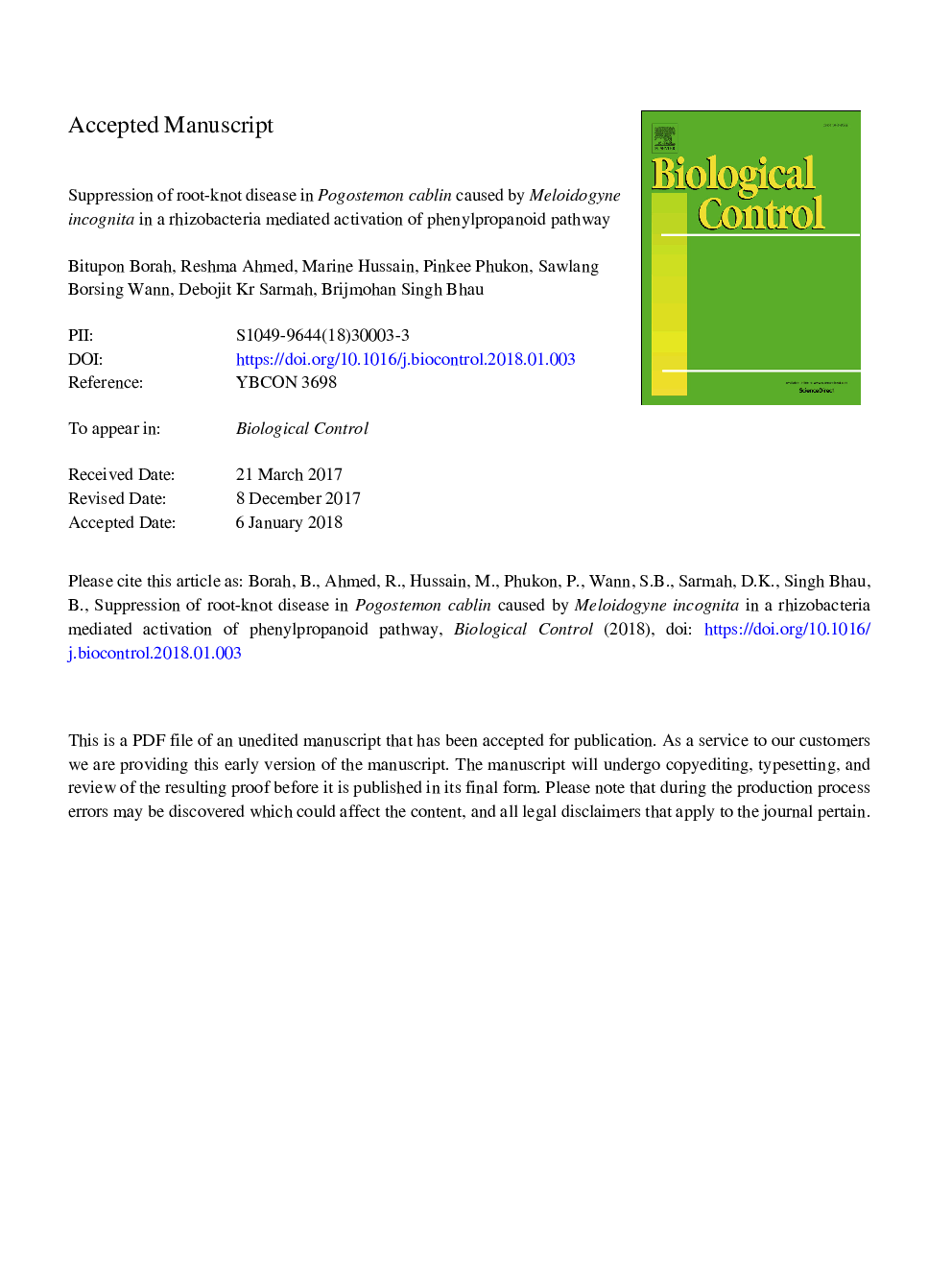| کد مقاله | کد نشریه | سال انتشار | مقاله انگلیسی | نسخه تمام متن |
|---|---|---|---|---|
| 8877713 | 1624215 | 2018 | 30 صفحه PDF | دانلود رایگان |
عنوان انگلیسی مقاله ISI
Suppression of root-knot disease in Pogostemon cablin caused by Meloidogyne incognita in a rhizobacteria mediated activation of phenylpropanoid pathway
دانلود مقاله + سفارش ترجمه
دانلود مقاله ISI انگلیسی
رایگان برای ایرانیان
کلمات کلیدی
موضوعات مرتبط
علوم زیستی و بیوفناوری
علوم کشاورزی و بیولوژیک
علوم زراعت و اصلاح نباتات
پیش نمایش صفحه اول مقاله

چکیده انگلیسی
Biological control of plant diseases using Plant Growth Promoting Rhizobacteria (PGPR) is an emerging technique, not only because it provides control over the disease, but also acts in an eco-friendly way. In this study the isolated Pseudomonas putida strain, BG2 (KU312064.1) and Bacillus cereus BC1 (KX762284), promoted growth as well as provided resistance to Meloidogyne incognita infection. From the gene expression analysis it was found that both the strains activated phenylpropanoid pathway through - overproduction of Phenylalanine ammonia lyase (PAL) enzyme. Further, the BG2 strain also activates the chalcone synthase enzyme leading to the synthesis of flavonoids, which are known to possess nematicidal activity. We finally concluded that the BG2 and BC1 strains can be a potential biocontrol agent to deal with root-knot disease of Patchouli caused by M. incognita, and of benefit for the overall growth of the plant including increase in essential oil yield.
ناشر
Database: Elsevier - ScienceDirect (ساینس دایرکت)
Journal: Biological Control - Volume 119, April 2018, Pages 43-50
Journal: Biological Control - Volume 119, April 2018, Pages 43-50
نویسندگان
Bitupon Borah, Reshma Ahmed, Marine Hussain, Pinkee Phukon, Sawlang Borsingh Wann, Debojit Kr. Sarmah, Brijmohan Singh Bhau,